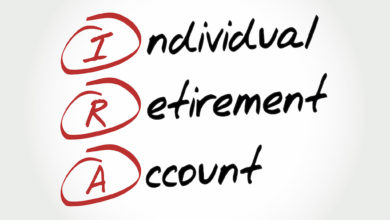Estate Planning Mistakes to Avoid for a Stress-free & Wealthy Retirement

Planning for retirement is a critical aspect of financial security, and retirement and estate planning plays a vital role in ensuring a stress-free and wealthy retirement. A well-thought-out estate plan can not only minimize potential conflicts among heirs but also maximize your retirement savings. Are you prepared for the years ahead? In this blog post, we will explore the essential steps to creating a solid retirement and estate planning strategy, helping you avoid common mistakes and achieve financial peace of mind.
Quick Summary
- Integrate retirement and estate planning to maximize wealth for retirement.
- Understand the tax implications of retirement accounts, contribute to tax-advantaged accounts, and consider trusts and powers of attorney in your plan.
- Seek professional advice from financial planners, estate attorneys, and tax experts for a secure future.
Integrating Retirement and Estate Planning

Integrating retirement and estate planning is a crucial step to ensure a seamless transfer of wealth and reduce anxiety for your loved ones. By combining these two aspects of financial planning, you can achieve your retirement income goals and ensure a comfortable future while protecting the interests of your family members.
In the following sections, we will delve into the key components to consider in retirement savings and planning, and estate essentials.
Retirement Savings and Goals
Synchronizing retirement savings and goals with estate planning is essential to guarantee a comfortable and secure future. But what does retirement planning involve? It involves identifying income resources, calculating expenses, initiating a savings program, and managing assets and risks while considering income tax implications. It is recommended to allocate 10% to 15% of your total income to retirement savings throughout your working life, and maximizing employer matching contributions can help you reach this goal more effectively.
It is equally important to verify your retirement plan beneficiaries to ensure they are in accordance with your current wishes and to keep the Social Security Administration informed of any changes. To optimize your Social Security benefits, it is advised to apply at full retirement age or beyond. Additionally, maximizing contributions to a 401(k) with an employer match can lead to increased retirement savings and potentially tax-free income.
Estate Planning Essentials
Estate planning essentials include having a will, naming beneficiaries, and anticipating potential disability or long-term care needs. Having a will allows you to ensure that your assets are allocated according to your wishes and circumvent a lengthy and complex probate procedure. To further protect your assets, it is crucial to designate at least two contingent beneficiaries for each asset in your will or trust. This can prevent the need for a probate court process if the primary beneficiary passes away before you.
Estate planning can also aid in preparing for unforeseen disability and its consequences. A living will outlines specific instructions for medical care to be followed in the event of your incapacity. A revocable trust can be utilized to aid with disability planning, providing a means to manage your property while you are alive and after your death. A durable power of attorney appoints a trusted individual to make medical, financial, and business decisions on your behalf if you are unable to do so yourself.
Understanding Retirement Accounts and Taxes

Understanding the tax implications of retirement accounts is vital for optimizing savings and minimizing tax burdens. Tax-advantaged retirement accounts, such as 401(k)s and IRAs, offer a means of accumulating wealth for retirement tax-free. By carefully managing your retirement account, you can maximize its potential and ensure a comfortable future.
In the following subsections, we will explore the benefits of tax-advantaged retirement accounts and the tax implications of withdrawals.
Tax-Advantaged Retirement Accounts
Tax-advantaged retirement accounts, such as 401(k)s and IRAs, offer a means of accumulating wealth for retirement. A 401(k) is a retirement savings plan typically offered by employers, with a maximum contribution limit of $22,500 per year in 2023 and an additional catch-up contribution of $7,500 for those 50 or older. Contributions to a 401(k) are made on a pre-tax basis, decreasing taxable income in the year of contribution, and interest and earnings accrue tax-free until withdrawal in retirement.
Individual Retirement Accounts (IRAs) come in two common forms: Traditional and Roth IRAs. The maximum contribution limit for a traditional or Roth IRA in 2023 is $6,500, as per IRS regulations.
By contributing to these tax-advantaged accounts, maximizing employer-sponsored retirement plans, such as 401(k) and 403(b) plans, and learning how to budget for retirement, you can effectively grow your wealth for retirement and ensure financial security.
Tax Implications of Withdrawals
Being aware of tax implications when withdrawing from retirement accounts is essential to avoid penalties and unnecessary taxes. Withdrawals from 401(k) accounts prior to the age of 59 1/2 are subject to a 10% penalty, with the exception of hardship withdrawals. It is crucial to carefully plan when and how much to withdraw from your retirement accounts to minimize tax burdens and make the most of your savings.
In some cases, it might be beneficial to consider converting traditional retirement plan assets to a Roth IRA. While the amount of the conversion will be considered as income for the corresponding year, resulting in the payment of income taxes, withdrawals from a Roth IRA will not be included in your modified adjusted gross income, avoiding the threshold that would result in the 3.8% Medicare investment surtax.
Consulting a tax expert, such as the Institute of Financial Wellness, can help you navigate these complex tax implications, including how to pay income taxes and make informed decisions.
Estate Planning Tools for Retirement

Estate planning tools, such as trusts and powers of attorney, can provide additional control and protection during retirement. Trusts offer privacy, control, and potential tax benefits, while powers of attorney designate trusted individuals to make financial and medical decisions on your behalf if needed.
In the following subsections, we will discuss this estate planning tool in greater detail.
Trusts
Trusts are legally-binding arrangements in which a trustee holds and manages assets for the benefit of the trust’s beneficiaries. These instruments provide privacy, control, and potential tax advantages for estate planning in retirement. Various types of trusts can be utilized for estate planning, such as revocable living trusts, irrevocable trusts, special needs trusts, and charitable trusts. Each trust has its own distinct advantages and disadvantages and can be employed to fulfill various objectives.
Obtaining professional counsel when establishing a trust is of paramount importance due to the intricate nature of these legal documents. An experienced estate planning attorney can guarantee that the trust is constructed accurately and caters to the individual’s requirements. Trusts can play a crucial role in minimizing taxes, protecting assets, and ensuring a smooth transfer of wealth to your beneficiaries.
Powers of Attorney
On the other hand, powers of attorney serve to appoint trusted individuals to make financial and medical decisions on one’s behalf should the need arise. A power of attorney is a legal instrument that authorizes someone to administer your financial accounts, whereas a health care proxy is a legally binding document that allows an individual to designate someone to make medical decisions on their behalf in the event that they are unable to do so.
The authority of an individual with full power of attorney extends to the utilization of one’s assets to cover medical expenses. It is important to carefully consider the person you appoint as your power of attorney, as they will have significant control over your financial and medical decisions.
Including powers of attorney in your estate plan can provide peace of mind knowing that your financial and medical affairs will be managed by someone you trust in the event of incapacity.
Health Care Considerations in Retirement and Estate Planning

Health care considerations play a crucial role in retirement and estate planning, as they help ensure adequate coverage and minimize expenses. Planning for future healthcare costs is essential to avoid accumulating medical debt and to guarantee adequate savings for medical costs and insurance coverage.
In the following subsections, we will explore the importance of Medicare and supplemental insurance, as well as long-term care planning. Remember that you can use a retirement income calculator to get an idea of how much you need to retire comfortably.
Medicare and Supplemental Insurance
Medicare and supplemental insurance can help cover health care costs during retirement. Navigating the complex world of Medicare and supplemental insurance can be challenging, but understanding your options and selecting the appropriate coverage can make a significant difference in managing healthcare expenses in retirement. It is also essential to be aware of the tax implications of retirement accounts to maximize savings and minimize tax burdens.
A Health Savings Account (HSA) is a tax-advantaged account available to assist with healthcare expenses during retirement. Although Medicare provides some coverage for health care costs, it does not cover all retirement health care expenses. By strategically planning for Medicare and supplemental insurance, you can ensure adequate coverage and reduce out-of-pocket expenses during your golden years.
Long-Term Care Planning
Long-term care planning involves preparing for services, programs, and resources to fulfill health or personal care needs over an extended period of time. Proper long-term care planning, including insurance and pre-planning for nursing home care, is essential to safeguard assets and guarantee quality care. A special needs trust is a beneficial instrument for formulating a plan for the preservation of the spouse residing at home while concurrently guaranteeing the spouse needing medical attention meets the criteria for Medicare funds.
It is important to consider the potential need for long-term care as part of your retirement and estate planning process. By evaluating your health, lifestyle, and family medical history, you can make informed decisions about the type of long-term care planning that is most appropriate for your situation. Incorporating long-term care planning into your estate plan can provide peace of mind and ensure your needs are met in the future.
Updating Your Estate Plan Throughout Retirement

Regularly updating your estate plan throughout retirement is essential to ensure it remains aligned with your current circumstances and wishes. Life events and changing circumstances may necessitate alterations to your estate plan, and periodic reviews can help identify any necessary changes and ensure its effectiveness.
In the following subsections, we will discuss the importance of updating your estate plan in response to life events and the need for periodic reviews.
Life Events and Changing Circumstances
Life events and changing circumstances, such as marriage, divorce, or the birth of a grandchild, may require updates to your estate plan. It is important to regularly review and modify your estate plan to ensure it accurately reflects your current situation and desires. Keeping your estate plan up-to-date can help minimize potential conflicts among heirs and maximize the value of your assets.
In addition to major life events, changes in your financial situation or shifts in tax laws can also necessitate updates to your estate plan. By staying informed and making necessary adjustments, you can ensure that your estate plan remains effective and aligned with your current objectives.
Periodic Reviews
Periodic reviews of your estate plan are essential in order to identify any potential modifications and guarantee that it remains effective. It is recommended to review your estate plan at least every three to five years or when there is a significant life event, such as marriage, divorce, the birth of a child, the death of a spouse, or a change in financial circumstances.
By regularly reviewing and updating your estate plan, you can ensure that your assets will be distributed according to your wishes and that your loved ones will be protected in the event of your passing or incapacity. Regular reviews can also help you stay informed about changes in tax laws and regulations, allowing you to make any necessary adjustments to your estate plan.
Avoiding Common Retirement and Estate Planning Mistakes

Avoiding common estate planning mistakes can lead to a more secure and stress-free retirement. In the following subsections, we will discuss procrastination and inaction, as well as inadequate diversification and rebalancing, and provide tips to help you avoid these pitfalls in your retirement and estate planning.
Procrastination and inaction can be major issues when it comes to retirement and estate planning.
Procrastination and Inaction
Procrastination and inaction can result in missed opportunities and financial hardships for you and your loved ones. Overcoming procrastination is essential to take control of your financial future and make informed decisions about your retirement and estate planning. To avoid procrastination, set realistic goals, break them down into smaller, achievable tasks, prioritize tasks, and set deadlines for yourself.
Creating a plan of action and sticking to it can help you stay on track with your retirement and estate planning goals. By taking action now, you can ensure a more secure and comfortable retirement for yourself and your loved ones and prevent unnecessary stress and financial strain.
Inadequate Diversification and Rebalancing
Inadequate diversification and rebalancing of your investment portfolio can lead to unnecessary risks and potential losses. Diversification is a risk management strategy that involves investing in a variety of assets to minimize risk. By diversifying your investments across various asset classes, sectors, industries, countries, and types of investments, you can reduce the overall risk of your portfolio.
Rebalancing is essential to maintain the desired level of risk and return in your portfolio. By routinely rebalancing your portfolio, you can ensure that your investments align with your risk tolerance and objectives and decrease the risk of over-concentration in any single asset or sector. By maintaining a diversified and properly balanced portfolio, you can safeguard your retirement savings and achieve your financial goals.
Seeking Professional Advice

Seeking professional advice from financial planners, estate planning attorneys, and tax experts can help create a comprehensive and effective retirement and estate plan. In the following subsections, we will discuss the benefits of consulting these professionals and how they can assist you in achieving your retirement and estate planning objectives.
Consulting with a financial planner can help you create a retirement plan that is tailored to your needs.
Financial Planners

Financial planners can help you identify income sources, calculate expenses, and develop a savings strategy for retirement. By working with a financial planner, you can make informed decisions about your finances and create a plan to achieve your financial objectives. Financial planners have the expertise and knowledge to guide you through the complex world of retirement planning, ensuring that you have sufficient funds to sustain you during your retirement years.
Engaging the services of a financial planner can provide assurance that your finances are in capable hands and help you stay on track with your retirement and estate planning goals. A financial planner can assist you in evaluating your current financial situation, setting realistic goals, and creating a comprehensive financial plan that takes into account your unique needs and circumstances.
Estate Planning Attorneys
Estate planning attorneys can assist in drafting legally valid estate planning documents, such as wills, trusts, and powers of attorney, and provide guidance on estate planning strategies. By engaging an estate planning attorney, you can ensure that your estate plan is legally binding and structured to fulfill your objectives. An attorney can also provide beneficial guidance on how to configure your estate plan to reduce taxes and maximize the value of your assets.
Selecting the right estate planning attorney is crucial to ensure that your estate plan is accurately constructed and caters to your individual requirements. By working with a qualified estate planning attorney, you can navigate the complex legal landscape of estate planning and ensure your assets are protected and distributed according to your wishes.
Tax Experts

Tax experts can help you navigate the complex tax implications of retirement accounts and estate planning, minimizing tax burdens and maximizing savings. Certified Public Accountants (CPAs), tax attorneys, enrolled agents, and some financial advisors are considered tax experts. By consulting a tax expert, you can ensure that your retirement and estate planning strategies are in accordance with the latest tax laws and regulations.
Regularly consulting a tax expert can keep you informed about changes in tax laws, allowing you to make any necessary adjustments to your estate plan. Tax experts can also provide guidance on the tax implications of various retirement accounts, helping you make informed decisions about your retirement savings and estate planning strategies.
Full Summary
A well-thought-out retirement and estate plan is essential for ensuring a stress-free and wealthy retirement. By integrating retirement and estate planning, understanding retirement accounts and taxes, utilizing estate planning tools, considering health care costs, updating your estate plan throughout retirement, avoiding common mistakes, and seeking professional advice, you can achieve financial security and peace of mind. Take control of your retirement and estate planning today, and create a legacy that will benefit you and your loved ones for years to come.
At the Institute of Financial Wellness, we’re committed to supporting you every step of the way on your journey toward financial wellness. Whether you’re just starting out or looking to make significant changes to your financial plan, we’re here to provide the guidance and support you need to succeed.
So, take the first step towards a brighter financial future and request your FREE Custom Retirement Roadmap today. We look forward to working with you!
Frequently Asked Questions
What is the difference between retirement planning and estate planning?
Retirement planning is the process of setting and achieving income goals for retirement, whereas estate planning involves making provisions for how one’s estate should be distributed upon death.
Is estate planning important for retirement?
Estate planning is an important component of retirement planning as it helps protect your retirement plan and offers other benefits. It can help ensure that your assets are distributed according to your wishes, provide tax advantages, and help you avoid probate. It can also provide for the care of minor children and provide for the care of the elderly.
What are the three biggest pitfalls to retirement planning?
Not having well-defined retirement goals, not starting early enough, and expecting unrealistic growth can all be potential pitfalls to retirement planning. It is important to define goals and start early in order to increase the likelihood of a successful retirement. Setting realistic goals and starting early are key to successful retirement planning. It is important to understand the potential risks and rewards associated with different retirement strategies. Taking the time to research and plan for retirement can help ensure that you are able to retire.
Are retirement plans part of your estate?
Retirement plans are part of your estate and will be subject to federal estate tax; however, if the beneficiary designations are properly filled out, they can be transferred to beneficiaries without going through probate. This means that the assets can be passed on to your heirs without the time and expense of probate court proceedings.
What are the benefits of combining retirement and estate planning?
Combining retirement and estate planning provides a stress-free transition of wealth, making it easier for loved ones to manage while still helping you achieve your retirement income goals. By taking the time to plan ahead, you can ensure that your assets are distributed according to your wishes and that your family is taken care of after you are gone. With the right planning, you can also minimize taxes and maximize the value of your estate.
Evan Sussman is honored to serve as Senior Vice President for IFW. Evan has been a successful financial professional for over 17 years. On December 24th 2019, Evan was diagnosed with Stage 3 cancer, and is currently on the road to full recovery. He is forever indebted to the doctors, nurses, and staff that took care of him. Evan has dedicated his career to helping people secure their financial health and well-being.






